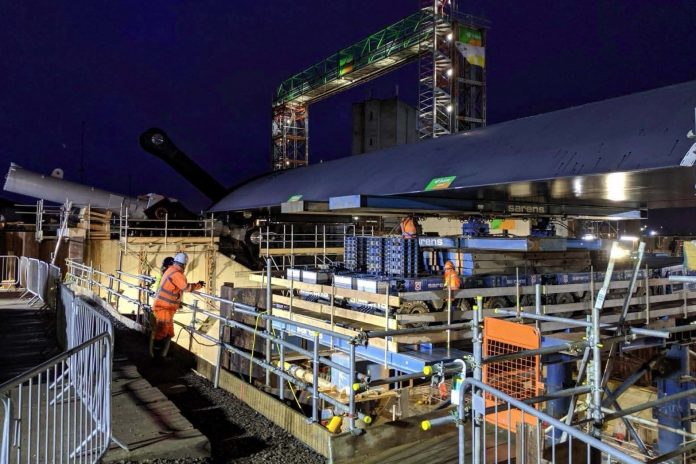Judges for the Institution of Civil Engineers’ ‘Edmund Hambly Medal’ select winners for their ‘important contribution to the wellbeing of mankind and the environment’.
It recognises that the barrier has been built not only to better protect more than 14,000 homes and businesses from tidal flooding, but that it does so in a way that safeguards the world for future generations.
From reducing waste and raw materials to cutting carbon emissions, the Environment Agency has put sustainability at the centre of every construction decision it has made.
That has included:
- avoiding 30,000 lorry journeys by re-using construction debris
- saving 1,500 tonnes of steel and 5,000 cubic metres of concrete by revising designs
- investing more than £5m into the local economy by sourcing suppliers and materials from within a 50-mile radius
- cutting hundreds of tonnes of carbon emissions
- contributing to local health and wellbeing by improving access to the long-distance Macmillan Way for people with disabilities.
The Environment Agency’s approach has been guided by sustainability principles devised by the United Nations. The 17 Global Goals offer a blueprint for addressing global challenges, including climate change, inequality, poverty and environmental degradation.
The Boston Barrier scheme is being delivered by Bam Nuttall and Mott MacDonald Joint Venture and should result in significant, wide-ranging benefits for the community. This includes encouraging inward investment, improving resilience and public wellbeing, and protecting historic buildings.
Adam Robinson, Boston Barrier project director for the Environment Agency, said:
It is a privilege to receive the Edmund Hambly Medal and to be recognised by the ICE for making sure sustainability and the UN Global Goals are front and centre of our project.
We have been a lead case study for how we deliver sustainability throughout our work, addressing both the UN’s goals and our own EA2025 objective for a nation more resilient to climate change.
It is fantastic that the whole project team can be recognised in this way for their commitment and drive to not only provide Boston with one of the highest levels of protection outside of London, but also how we can positively impact on all 17 UN Global Goals and deliver a sustainable project over its 100-year design life.
Paul Sheffield, ICE president, who presented the awards, said:
On behalf of the institution, I want to offer my congratulations to all this year’s ICE Award winners. These awards seek to recognise outstanding civil engineering achievements as well as long-term contributions to both the engineering profession and ICE itself, showcasing true vision, leadership and excellence in our industry.
In winning an ICE Award, these engineers are recognised for adding immense value, both to their profession and to society. All winners and nominees have shown how to shape themselves as better engineers in order to improve people’s lives and create a better world.
The Environment Agency beat off stiff competition to win the award, whose past international winners have included Hong Kong’s Harbour Area Treatment Scheme – the largest environmental infrastructure project in that city’s history.
EA2025 sets out three long-term goals: a nation resilient to climate change; healthy air, land and water; and green growth and a sustainable future. Some of its ambitious targets for 2020/21 include improving more than 4,000 kilometres of river, creating nearly 1,200 hectares of habitat and being on track to be carbon-neutral by 2030.







